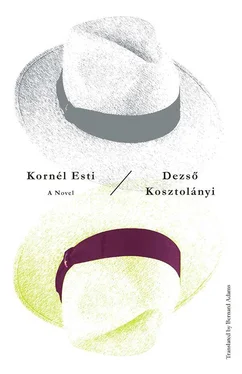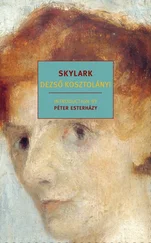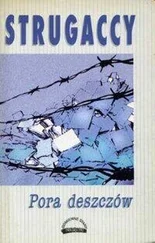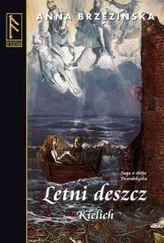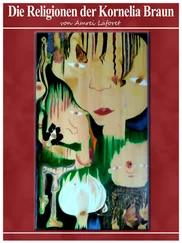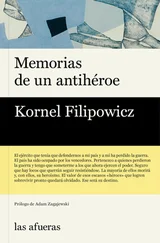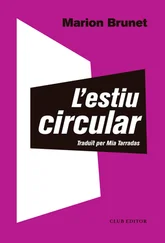Confused by these novelties, brought low in all situations and repeatedly cut to the quick, he sauntered hither and thither and, like someone flayed, things stuck to his flesh; he painfully tore off the healing scabs and became unhealthily receptive to every impression, his every sense became sharpened and refined, and a word that struck his ear, the smell of mash from a brewery, or a glass of unfamiliar shape — a “Budapest glass”—became, in the dingy back room of his hotel, a symbol, an unforgettable memory, and when at length, dazed from the comings and goings of the day, he took refuge in bed — the “Budapest bed,” among the “Budapest pillows”—there welled up in his heart a nostalgia for the old things, the old people, and in despair he yearned for home. Nor did sleep come to his eyes. He propped himself up on the pillows in his dark room and pondered.
Next afternoon he boarded the express for Fiume. *He quickly found a seat. There were not many traveling. In the second-class compartment where he first opened the door there were only two: a woman and her daughter. He greeted them. The woman received that with a wordless nod, good-natured but reserved, as if to inform him that she occupied a position of friendly neutrality. He crammed his basket onto the luggage rack and settled down by the window. The lady sat across from him, her daughter beside her, obliquely opposite him.
Esti fanned himself. An African temperature prevailed. The sweltering carriages, which had been baking all day in the blazing sun, were now oozing their poison, fuming and dusty, and the seats exuded the stench of some animal hide. The dark patches in the clouds of steam swirled drunkenly before his eyes in that yellow waxwork light.
He spared his traveling companions scarcely a glance. He didn’t even wish to know who they were. Schooled by bitter lessons, he feigned indifference. He could by then dissimulate better than those who had devoted their whole lives to it. He opened his book, Edmondo de Amicis’ Il Cuore . *It amused him that even with his patchy knowledge of Italian he could understand it perfectly and read it almost fluently on the basis of his Latin.
The train ran out of the glass cage of the station. The woman made the sign of the cross. That surprised him. It wasn’t customary in his family. But it made an impression on him. What beautiful, womanly humility. “We are all in the hand of God.” Indeed, traveling impairs our life expectancy. It isn’t a deadly danger, only about as bad as a quinsy from which can develop — perhaps — blood poisoning or heart failure. That journey, furthermore, was no trifling matter. It lasted twelve hours without a break: part of the afternoon, then the whole of the night until eight the next morning. When they arrived the sun would be shining again — who knew what might happen during that time?
He delighted in that uncertainty. He was also pleased that no other passenger had come into their compartment, so that he would probably have a comfortable journey all the way with only that woman and her daughter, who, if not actually friendly, were not hostile.
They rattled through the marshaling yards. Now they were out of Budapest, among the fields. The sticky heat had cooled, been diluted. There was even a slight breeze. He felt that he had become free, had left behind him all sorts of things, that all sorts of things no longer restricted him as they had previously, and that the young man who was sitting there with the Italian book in his hand was really him and not him, could be anyone he wished, because with the constant change of place he was entering an infinite variation of possible situations, a kind of spiritual masked ball.
The woman adjusted her ash-blonde hair, fiddled with the chignon at the back and her tortoiseshell hairpins. She had a calm face and an uncomplicated, clear forehead. Esti now discovered for the first time what intellectually fertile soil a railway compartment is. Here the lives of strangers appear before us in, as it were, cross section — suddenly and condensed — as in a novel opened haphazardly in the middle. Our curiosity, which otherwise we conceal by false modesty, can be satisfied under the constraint of our being enclosed together in a moving room, and we can peep into those lives and speculate on what the beginning of the novel must have been and how it will end. Esti had already, in his school literary circle, produced some decent work as both poet and novelist. Here too he could practice that craft. However gauche he was otherwise, he could cloak his intentions and give himself over completely to creative inquisitiveness, his eyes sliding more and more frequently from the guileless sentences of Il Cuore to the woman.
She must have been thirty-nine or forty, the same age as his mother. Straightaway, in the first moment, he felt an extraordinary warmth toward her. She had ivy-green eyes. She, however, looked at neither Esti nor her daughter, but stared into space — tired, sad, and perhaps even a little disinterested. She was looking into herself. She wouldn’t allow anyone else to look there.
She evinced a languid gentleness and trustfulness, like a dove. She wasn’t fat, not at all, but she was shapely, like a dove. The only jewelry on her hand was a gold wedding ring. That hand — the white hand of a mother — rested for the most part in her lap, in the pleasant, mystical softness of a mother’s lap.
She had with her two pigskin cases covered in coffee-brown canvas, decorated all over with the hummingbird brilliance of stickers from foreign hotels. Leather-framed name cards hung from the handles, swinging with the motion of the train. Beside her on the seat lay an elegant shagreen handbag.
Poise and taste were evident in her every movement. For that matter, she scarcely did move. That great calm was a trifle odd. She mused and did nothing. Sometimes Esti thought that at some point — when she sneezed or blew her nose — he would suddenly lose interest in her. But he was mistaken. As time went by, every such little tiny surprise merely reinforced his swift feeling of warmth toward her. Even inactivity didn’t make her boring. Everything that she did, or didn’t do, was good, beautiful, pleasing, and it was good, beautiful, or pleasing the way she did it, or didn’t do it.
As profound an affection for her awoke in him as if he were seeing his own mother. It did him good to look at that woman, to know that she was in the world and so close to him.
Meanwhile, time slipped by in such a way that he didn’t notice it.
Naturally, he gathered these observations slowly, bit by bit, something every minute, because he couldn’t be indiscreet, could only watch her for short periods, as if by chance, and then fly back with the precious, stolen pollen, to make it into honey in the buzzing beehive of his imagination.
Once, just as he was withdrawing again to hide behind the cover of Il Cuore , frowning and reading most intently, it struck him that the girl was whispering something to her mother.
In fact, he had been hearing this whispering — if such it may be called — this sotto voce murmuring ever since entering the compartment. He had, however, paid no attention to it. After a while he had become accustomed to it, as to the droning of a fly in a room on a summer afternoon.
The girl clung to her mother’s arm and whispered into her ear. Sometimes she made her hand into a funnel and whispered like that. What she whispered couldn’t be heard. Her mother sometimes paid attention to it, sometimes not. She would nod or shake her head in denial. When the whisper — or rather rustling sound — rose to a mutter or a buzz, she would quiet it, try mechanically, with half-words, to check it: “Hush, dear.” “Yes, dear.” “No, no, dear.” But that was all.
Читать дальше
